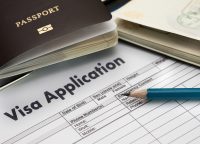UK Visa Refusal: How To Avoid It and What To Do If Your Visa is Refused?

It takes a long time to prepare all the documents for a visa. However, even with all the supporting evidence for a UK visa prepared and submitted, we keep our fingers crossed because a UK visa refusal is not uncommon.
UK Visa Refusal: What Should I Do?
A UK visa refusal is bad news but it is not the end of the world. It can be fixed in some cases, especially when an application was completed incorrectly or documents are missing, which happens a lot. Some people get overexcited and confused; others have never done this before and are not familiar with the process. Therefore, it is always a good idea to get in touch with an experienced immigration advisor who knows the UK immigration rules inside out and will make sure your visa application is flawless.
However, let’s imagine your UK visa has been refused. What will be your next steps? Stay calm but act quickly because you will have a limited amount of time. Here is what you can do after a UK visa refusal:
- Apply for an administrative review;
- Appeal;
- Make a new visa application.
We will look at each of the three options in detail below and discuss the most common reasons why the Home Office can refuse to grant you a permission to enter the UK.
Before we do, we want to underline that a UK visa refusal is a good reason to find yourself a qualified immigration advisor. This is the case when paying an expert will cost you less than learning from your mistakes. A refusal means you have already made enough of them and you should not make things worse.
Why a UK Visa Can Be Refused
As a rule, a Home Office caseworker will thoroughly explain in the refusal letter why your visa has been refused. The most common reasons are errors in the submitted documents or misleading information. Another one is when a caseworker suspected that you wanted to illegally immigrate into the UK. Let us now look at various reasons one by one.
Wrong Visa Category
Nobody would choose the wrong visa on purpose; it all comes down to a simple misunderstanding of which visa routes are available. For example, a young woman wants her wedding ceremony to be in the UK but she applies for a UK Fiancée visa instead of a UK Marriage Visitor visa. These are two totally different visa categories. A UK Marriage Visitor visa is a subcategory of a UK Visitor visa; it allows you to get married in the UK and then leave the country. With a UK Fiancé, Fiancée and Proposed Civil Partner visa, on the contrary, you can get married and stay in the UK to apply for a UK Spouse and Civil Partner visa. Therefore, make sure you choose your visa right to avoid refusal.
Another example: a foreign student wants to study and improve their English in a British summer camp. You might assume that a UK Student visa is the best choice because they are coming to study. But since it is only a short-term visit, they will need a UK Visitor visa. An application for a UK Student visa in this case will be refused.
The Purpose of Your Visit Does Not Justify How Long You Applied to Stay in the UK
Obviously, you would want to maximise your stay in the UK. However, unless you can justify it, do not apply to stay in the UK for a long time.
If you think about it, the Home Office applies a simple logic. A visa is granted for a purpose, not for a time period. If the purpose is to travel to the UK as a tourist, you will be granted a visa for short-term entry. It may be valid for six months to 10 years, but you are not supposed to stay in the UK for a long time and settle here.
A six-month tourist trip is not a common thing, unless, of course, you have a confirmed six-month itinerary that you paid for. It all boils down to whether you can justify staying in the UK that long. Another example: you have signed a one-year employment contract with a UK company and applied for a five-year UK work visa. Even though this type of visa can be granted for this period, you will be refused.
Therefore, to get a UK visa, you should explain to the Home Office, in as much detail as possible, what you are going to do in the UK and provide all necessary evidence, such as tickets to events and exhibitions, invitations to meetings or internship, confirmation of business meetings, etc. At the same time. , you don’t need to book a return flight until you get a visa. If you have already done it, add the tickets to your application to prove that you plan to go back home.
Another thing to remember, leave yourself enough time to apply for a visa, in accordance with the Home Office’s guidelines. You do not want to “force” a caseworker to take a hurried decision only because you have already booked your tickets. Having said that, there are some exceptional circumstances which allow fast-track applications, a death of a relative or an urgent medical treatment, but you will need to provide supporting evidence and a self-explanatory cover letter.
We do not recommend applying for a 2-, 5- or 10-year UK visa if you have never been to the country before. A long-term visa must be justified. If you apply for a long-term settlement visa, you must do so for a period stated in the supporting documents, such as a certificate of sponsorship from an employer or a university. Otherwise, the risk of getting a visa refusal will be higher.
There Are Questions About Your Finances
Here is what can cause a caseworker to doubt your financial position:
- Lack of funds
Your UK visa may be refused if you do not meet the financial requirements. In other words, you do not have enough funds to support yourself during your stay in the UK.
Most visas have minimum financial requirements. Applicants for a UK student visa must have £1,334 or £1,023, depending on whether they will study in or outside London, multiplied by nine months. UK work visa applicants you are required to have at least £1,270. Each dependant will need to be maintained too. - Unclear source of funds
In this case, you have a lot of money but you cannot prove whether they are legally sourced. The UK fights against money laundering and strongly discourages any criminal activities, not only obvious ones but also any indirect or illegal ways of obtaining money, through corruption, bribery, and kickbacks.
Whichever UK visa you apply for, you will always need to prove a legal source of funds, such as a deed of gift from your parents, dividends from your business, a sale of assets, etc. If a bank statement you submit with your visa application shows a big incoming amount, you must explain it. Therefore, the more evidence you submit to prove the legal source of your money the better. There is never too much of it but it will save you time and energy and ensure that you get your UK visa. - The inviting party lacks funds
This is different from the previous two reasons because it applies to your sponsor’s money. It is them who must show their income.
For example, a British national falls in love with a foreigner, and they decide to live together in the UK. Then the former must show that they earn at least £18,600 a year so that their partner can obtain a UK Fiancé, Fiancée and Proposed Civil Partner visa or a UK Spouse and Civil Partner visa. If an employer wants to hire a foreign specialist, they must send an official offer with the proposed salary which cannot be less than the minimum for this job. And they will have to pay this salary. The Home Office will check with HM Revenue and Customs to make sure that foreign workers are paid in full accordance with the rules.
There Are Doubts About You Returning to Your Home Country
Applicants for a UK Standard Visitor visa (the purpose of which is a short-term visit to the UK) must prove that they have strong ties in their country and will go back there without breaking UK immigration rules. Examples of such ties include:
- A family or relatives in need of care, such as minors or elderly parents;
- A permanent job or own business that requires your presence;
- Real estate or other assets.
Obviously, if you do not have any of the ties mentioned above, it does not mean that you have no chance of getting a UK visa. But a Home Office caseworker will consider your case much more carefully.
Ban on Travelling to Other Countries
If you have been refused a visa, have a many-year ban on travelling to, or entered another country illegally, this is a stain on your immigration record.
Let us imagine you overstayed a visa by a few days or weeks or entered a country illegally. Things happen; this is not the end of the world. You might even be able to get away with it if you can justify your actions. Nevertheless, the UK has numerous visa waiver agreements with other countries, so any immigration offences or a ban outside the UK will significantly jeopardise your chances of getting a UK visa.
An Error in a Visa Application
It can be a simple mistake made in a visa application or supporting documents. The most frequent ones are the following:
- Omissions or uncertainties in a visa application;
- Submitting a passport without a blank page for a visa;
- Providing an incomplete set of documents;
- Submitted documents are in the wrong format (no stamps, a wrong form, an illegible copy, etc.);
- Documents not translated into English, or the translation is not certified.
You can avoid these mistakes by perusing all publicly available information or getting in touch with a qualified immigration advisor who can protect your application from such flaws.
A 10-Year Ban on Travelling to the UK
This is a very serious measure that must be preceded by a serious offence. Here are a few examples of such offences.
- Willful misrepresentation
It is a particularly grave offence. If you are found to have been misleading the UK authorities or deliberately omitting important details, it will be very difficult to persuade the authorities to reconsider your visa refusal. These misrepresentations include false or incomplete information, falsified or edited documents, or deceptive answers even if they are not deliberate.
Applicants tend to hide certain information out of fear that the truth will lead to a visa refusal. But it is likely to lead to a long-term ban than to a simple refusal. Therefore, if you have already been refused a visa or broken immigration rules, you must inform the authorities about that when prompted by a question in an application and attach supporting evidence. If you don’t have an impeccable immigration record, we recommend consulting an advisor, who can help you turn the situation in your favour. It does not mean making up or hiding facts. It means looking at the situation from various angles to come up with an explanation that could be acceptable to the UK authorities and collecting the necessary evidence. If done properly, this will increase your chances of obtaining a UK visa.
- Suspect terrorism
Any connection to radical movements automatically makes you persona non-grata. What is meant here is not the extreme cases like training in a terrorist training camp for the purpose of blowing up Trafalgar Square or attempting to murder a British monarch. Those issues are dealt with by Scotland Yard and Interpol.
But if you have openly expressed extremist views or supported any terrorist-related organisations in social media or the mass media, this would cause a Home Office caseworker to be suspicious of you. It is not just the Islamists we are talking about here; it is also about Northern Irish movements which are active in the UK. If you have been involved in the public debates about them, you will certainly not get a visa, but more so, get a ban on entering the UK. - Law violation
This includes criminal and immigration offences, tax evasion, financial fraud, etc. If you have committed any of these in the UK, you will be charged, then deported and banned from entering the UK for 10 years.
Can I Get a UK a Refusal?
Yes, you could, so never give up. First, understand why you were refused and act accordingly. It might be a good idea to talk to experienced immigration advisors who can help you find the best solution. Here is what you can do.
Apply for an Administrative Review
For example, you are certain that the Home Office caseworker made an error or some important circumstances were not taken into account. Then you can apply for an administrative review, provided that the visa category you have chosen allows it. The UK immigration system works well but the risk of human error remains.
Suppose you are refused a visa because some documents are missing but you are 100% sure that they were submitted. In this case, you can also apply for an administrative review. If you applied from inside the UK, you have 14 days after the date of refusal. If the application was submitted from outside the UK, you have 28 days after getting the refusal letter.
It is important to remember that only the documents you submitted initially will be reviewed. You cannot add, change or correct anything. So, if a document was missing or submitted in an incorrect format, the refusal will remain in force.
You should take into account that an administrative review can take up to six months, while an appeal, another option you have in case of a UK visa refusal, takes from 9 to 24 months on average.
Appeal to an Immigration TribunalVisa After
You may appeal against the decision of the UK authorities if you think that the decision violates your human rights and if your visa category allows that. Here are some of the possibilities:
- Violation of the UK immigration laws: you believe that the refusal is unfounded, and the administrative review has not cancelled the decision;
- Violation of human rights: for example, you are being separated from your spouse or children;
- Racial or ethnic discrimination: if you suspect that your visa was refused on racial or ethnic grounds;
- You are refused asylum: it is against the Refugee Convention signed by the UK.
The time frame is the same as the one for an administrative review – 14 or 28 days if you apply from inside or outside the UK, respectively. If you are denied entry at the border, you also have only 14 days to appeal.
Additional documents can be added to an appeal application. The more evidence of the refusal caused by a misunderstanding you can collect, the better.
The process of appeal consists of the following stages:
- Collecting necessary documents, preparing relevant arguments and application to the First-Tier Tribunal of the Immigration and Asylum Chamber. Submitting the appeal and paying a fee;
- When the appeal is accepted by the Tribunal, you have a deadline to prepare and submit a set of documents to the Tribunal;
- If you are sure that your arguments and circumstances are 100% convincing and you think you can win the case in the Tribunal, you can apply to the Home Office for a pretrial hearing and review by sending them copies of all the documents. If the evidence looks convincing enough for the caseworkers, you will get your visa;
- If the caseworkers are reluctant to change the decision, you will have to prove your point at a hearing in the Tribunal. You may do this on your own or find yourself an immigration advisor;
- The Tribunal will hear the case. This is an independent court of cassation, rulings of which cannot be influenced by the Home Office. A judge will consider the evidence and will take into account only UK laws and regulations. The process is long and can take up to 24 months.
You may attend the hearing in person or send your legal representative. When things have reached such a serious stage as an appeal hearing, it is better to have the backing of an experienced advisor. Or else you risk getting an absolute refusal.
Submit a New Visa Application
If you made a mistake in an application or documents, it is easier to reapply for a UK visa. Although you will have to pay the application fee again, the processing will be much shorter.
Obviously, this time over, make sure to double-check things to make sure everything is correct. You can apply as many times as you like, but every time your chances of getting a visa are fading away. You really should not let this happen.
How to Avoid a UK Visa Refusal?
Applying for a UK visa is clearly not an easy process, even a UK Visitor visa. When it comes to a settlement visa, you should be twice as careful. You can either get to the bottom of all the UK immigration laws yourself or work with an immigration advisor specialising in this field. A well-thought-out and considered approach will minimise the risk of getting a UK visa refusal. And even if your visa is refused, there is always a way to make things right.





